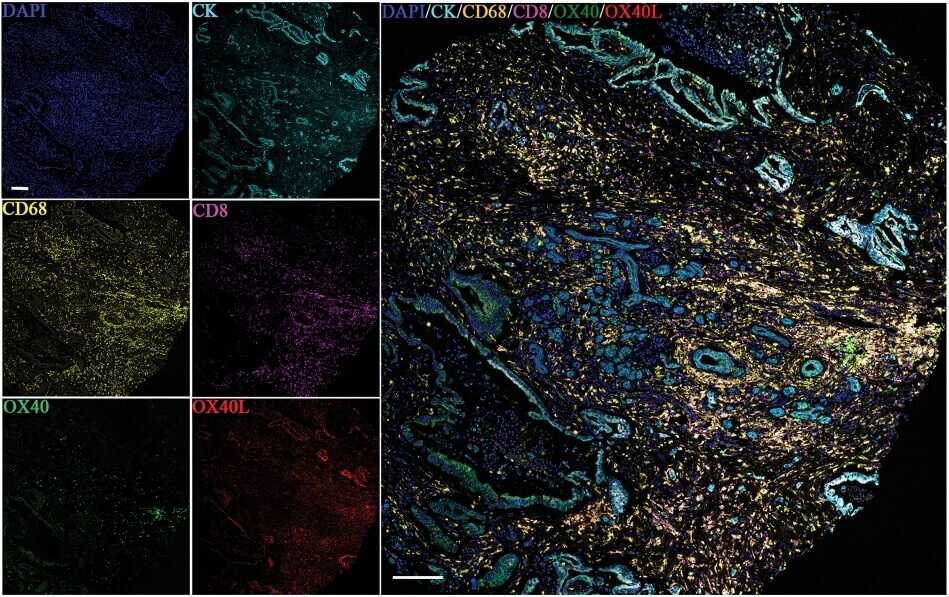Hi-Affi™ Humanized OX40L Immune Checkpoint Knockin Mouse Model
Immunotherapy refers to the treatment of diseases by inducing, enhancing, or suppressing an immune response. Therapeutic manipulation of immune pathways has resulted in promising clinical results for the treatment of various diseases such as cancer, autoimmune diseases, and inflammatory diseases. Studies in this field are rapidly evolving since numerous scientists seek to identify the next generation of therapies. OX40L is part of a potent co-stimulatory pathway and has been regarded as a promising target for immunotherapies. Creative Biolabs, who always focus on the new frontier of drug discovery, has established a Hi-Affi™ “humanized” mouse model platform including the humanized OX40L knock-in mice for novel therapeutic antibody development and evaluation.
T-cell Co-stimulation
Co-stimulation has become a promising research highlight since a mechanistic understanding of co-stimulatory signals may enable rational therapeutic approaches for manipulating immune response. According to the two-signal model of T cell activation, T cell activation requires two simultaneous signals, an antigen-specific signal and a second, costimulatory signal to optimally activate immune response. Without the costimulatory signal, T cell receptor engagement would not only lead to a failure to induce an immune response but also result in functional T cell inactivation. Interactions between tumor necrosis factor (TNF) and TNF receptor (TNFR) family members, including OX40-OX40L, CD40-CD154, CD30-CD30L, and CD27-CD70 have been involved in T cell co-stimulation and/or antigen-presenting cell (APC) activation.
 Fig. 1 Six-color multispectral images and separated individual spectral images stained with CK, DAPI, OX40, OX40L, CD8, and CD68.1
Fig. 1 Six-color multispectral images and separated individual spectral images stained with CK, DAPI, OX40, OX40L, CD8, and CD68.1
OX40L Immune Checkpoint Pathway
OX40L, also been designated CD252 (cluster of differentiation 252) or TNFSF4, belongs to tumor necrosis factor (TNF) superfamily and acts as the ligand for OX40 (also known as CD134, cluster of differentiation 134). OX40L is part of a potent co-stimulatory pathway which is expressed on such cells as DC2s (a subtype of dendritic cells) enabling amplification of Th2 cell differentiation. OX40L is also expressed on activated B cells, activated endothelial cells, activated CTLs, activated mast cells, and airway smooth muscle cells.
OX40 & OX40L immune checkpoint pathway results in augmentation of effector cytokine production and prolongation of activation, and this is partially mediated through stabilization of mRNA. Research on a soluble form of OX40L has shown that its engagement amplifies T cell proliferative responses to a string of stimuli. The activation does not affect early proliferation and activation but controls late proliferation and activation states. Also, in vivo study has indicated that the OX40-OX40L signaling pathway once triggered would enhance T-cell memory, proliferation, and antitumor activity, and thus overcoming some of the immunosuppressive properties of cancer.
The Clinical Significance of OX40L Pathway
In addition, the co-stimulation blockade is also of great potential to serve as a novel transplant immunosuppression strategy. Research has demonstrated that anti-OX40L may be particularly useful in targeting alloreactive memory T cell responses that are relatively unaffected by traditional costimulation blockade regimens, and thus humanized anti-OX40L may also merit investigation as a transplant immunosuppressant for use in conjunction with other costimulation blockade agents.
Development of Humanized OX40L Immune Checkpoint Knock-In Mice
The preclinical development of human-specific immunotherapies such as immune checkpoint inhibitors is currently impeded by a lack of immunotherapy models featuring human targets in a fully functional immune system. Given this, scientists at Creative Biolabs successfully established a series of Hi-Affi™ humanized mouse models for in vivo efficacy evaluation of novel drugs. Especially, we now provide models and professional technical support for you, including OX40L immune checkpoint KI mouse. We guarantee the high knock-in efficiency with no other genes compromised and promise that our Hi-Affi™ humanized OX40L knock-in mice can make an excellent model for immunotherapy investigation, with high reliability and accuracy. Please feel free to contact us for more detailed information.
Creative Biolabs also offers other various Humanized Mouse Models you may be interested in:
Reference
- Chen, Xianlong, et al. "Analysis of the OX40/OX40L immunoregulatory axis combined with alternative immune checkpoint molecules in pancreatic ductal adenocarcinoma." Frontiers in Immunology 13 (2022): 942154. Distributed under Open Access license CC BY 4.0, without modification.
For Research Use Only.
